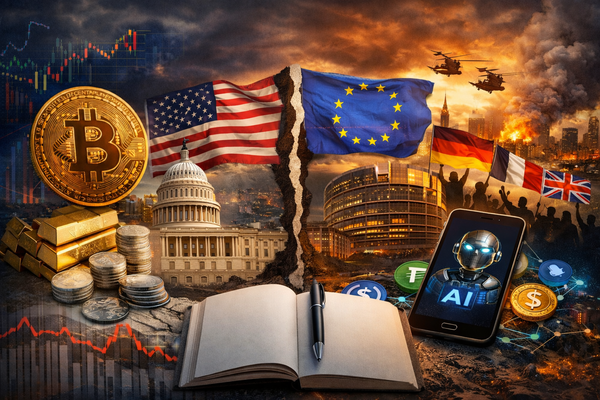Whose data is it anyway?
Tech companies are selling and using your data for AI, but should it be theirs to profit from?

In an era where data seems to be as valuable as currency, the prevailing trend in AI starkly contrasts with the concept of personal data ownership. The explosion of AI and the ensuing race have made it easy to overlook where the data is coming from. The current model, dominated by big tech players, involves collecting vast amounts of user data and selling it to AI companies for training LLMs. Reddit recently penned a 60 million dollar deal, Google guards and mines Youtube, and more are going this direction. But is that their data to sell? Yes, it's on their platforms, but without the users to generate it, what would they monetize? To me, this practice raises significant ethical questions, as it assumes that user data is a commodity that companies can exploit at will.
The heart of the issue lies in the ownership of data. Why, in today's digital age, do we not retain ownership of our data? Why can't our data follow us, under our control, to wherever we want to go? These questions echo the broader sentiment that while some in the tech industry — such as the blockchain-first crypto bros — recognize the importance of data ownership, their "blockchain for everything solutions," to me, fall significantly short in execution.
Reddit further complicates this with its current move to IPO, which, on the heels of the large data deal, might reinforce the mistaken belief that user-generated data is a corporate asset. Others, no doubt, will follow suit. This underscores the urgent need for a paradigm shift towards recognizing and respecting user data as personal property.
In my perfect world, the digital landscape would undergo a revolutionary transformation centered around the empowerment and sovereignty of individual data ownership. Platforms like Twitter, Reddit, Yelp, YouTube, and Stack Overflow, integral to our digital lives, would operate on a fundamentally different premise: user-owned data.
In this envisioned future, data ownership would not just be a concept but a practice, with public and private keys ensuring the authenticity and privacy of individual identities. This model would eliminate the private data silos that currently dominate, where companies profit from selling user data without consent. Instead, data would traverse a decentralized protocol akin to the internet, prioritizing user control and transparency.
The cornerstone of this world would be a meritocratic digital ecosystem. Success for companies would hinge on their ability to leverage user-owned data to deliver unparalleled value rather than their capacity to gatekeep and monetize information. If a company breaks my trust, I can move to a competitor, and my data, connections, and followers will come with me. This shift would herald an era where consent, privacy, and utility define the digital experience, ensuring that the benefits of technology are equitably distributed and aligned with the users' interests and rights.
The conversation needs to shift fundamentally. We must challenge this trajectory and advocate for a future where data ownership and privacy are not just ideals but realities. If we continue on our current path without prioritizing individual data rights, the future of digital privacy and autonomy is bleak. Big tech's dominance allows them to treat user data as a commodity, potentially selling and exploiting it without consent. This imbalance has already led to users being cut off from their digital identities and connections when platforms terminate accounts, underscoring the need for a digital ecosystem that empowers user control over data. Without changing direction, we risk a future where our content — and our freedoms by consequence — are controlled by a few powerful entities, threatening our rights and the democratic essence of the digital realm. We must advocate for a shift towards data ownership by individuals to preserve our digital freedoms and democracy.





